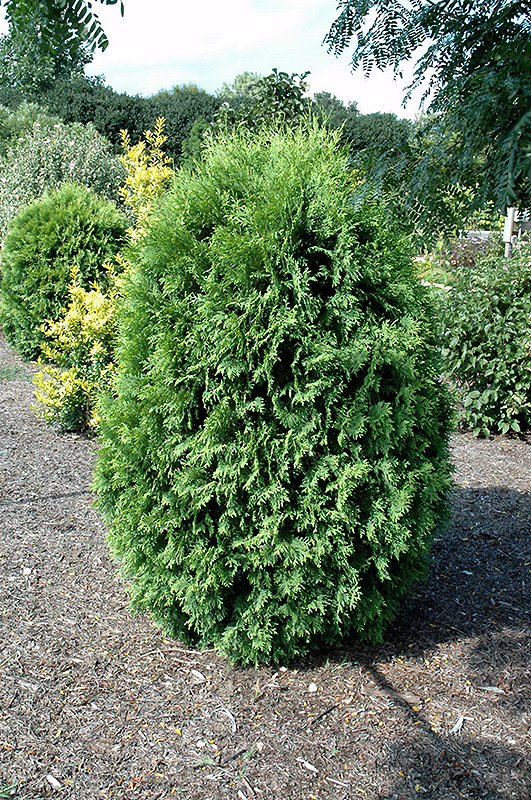Starkie's Gold Arborvitae
Thuja 'Starkie's Gold'
Height: 18 feet
Spread: 6 feet
Sunlight:
![]()
![]()
Hardiness Zone: 4b
Other Names: Starkie's Gold Cedar
Description:
An uncommon garden evergreen with very showy emerging yellow-gold sprays that progress to a dark glossy green; fall color is a soft brown; ideal where a narrow, compact color accent shrub is called for, takes pruning well; protect from drying winter winds
Ornamental Features
Starkie's Gold Arborvitae is a dwarf conifer which is primarily valued in the landscape for its rigidly columnar form. It has attractive gold-variegated dark green foliage which emerges yellow in spring. The glossy scale-like sprays of foliage are highly ornamental and turn brown in the fall, which persists throughout the winter.
Landscape Attributes
Starkie's Gold Arborvitae is a dense multi-stemmed evergreen shrub with a narrowly upright and columnar growth habit. Its relatively fine texture sets it apart from other landscape plants with less refined foliage.
This is a relatively low maintenance shrub. When pruning is necessary, it is recommended to only trim back the new growth of the current season, other than to remove any dieback. It has no significant negative characteristics.
Starkie's Gold Arborvitae is recommended for the following landscape applications;
- Accent
- Vertical Accent
- Hedges/Screening
Planting & Growing
Starkie's Gold Arborvitae will grow to be about 18 feet tall at maturity, with a spread of 6 feet. It has a low canopy, and is suitable for planting under power lines. It grows at a medium rate, and under ideal conditions can be expected to live for approximately 30 years.
This shrub does best in full sun to partial shade. It prefers to grow in average to moist conditions, and shouldn't be allowed to dry out. It is not particular as to soil type or pH. It is somewhat tolerant of urban pollution, and will benefit from being planted in a relatively sheltered location. Consider applying a thick mulch around the root zone in winter to protect it in exposed locations or colder microclimates. This particular variety is an interspecific hybrid.

